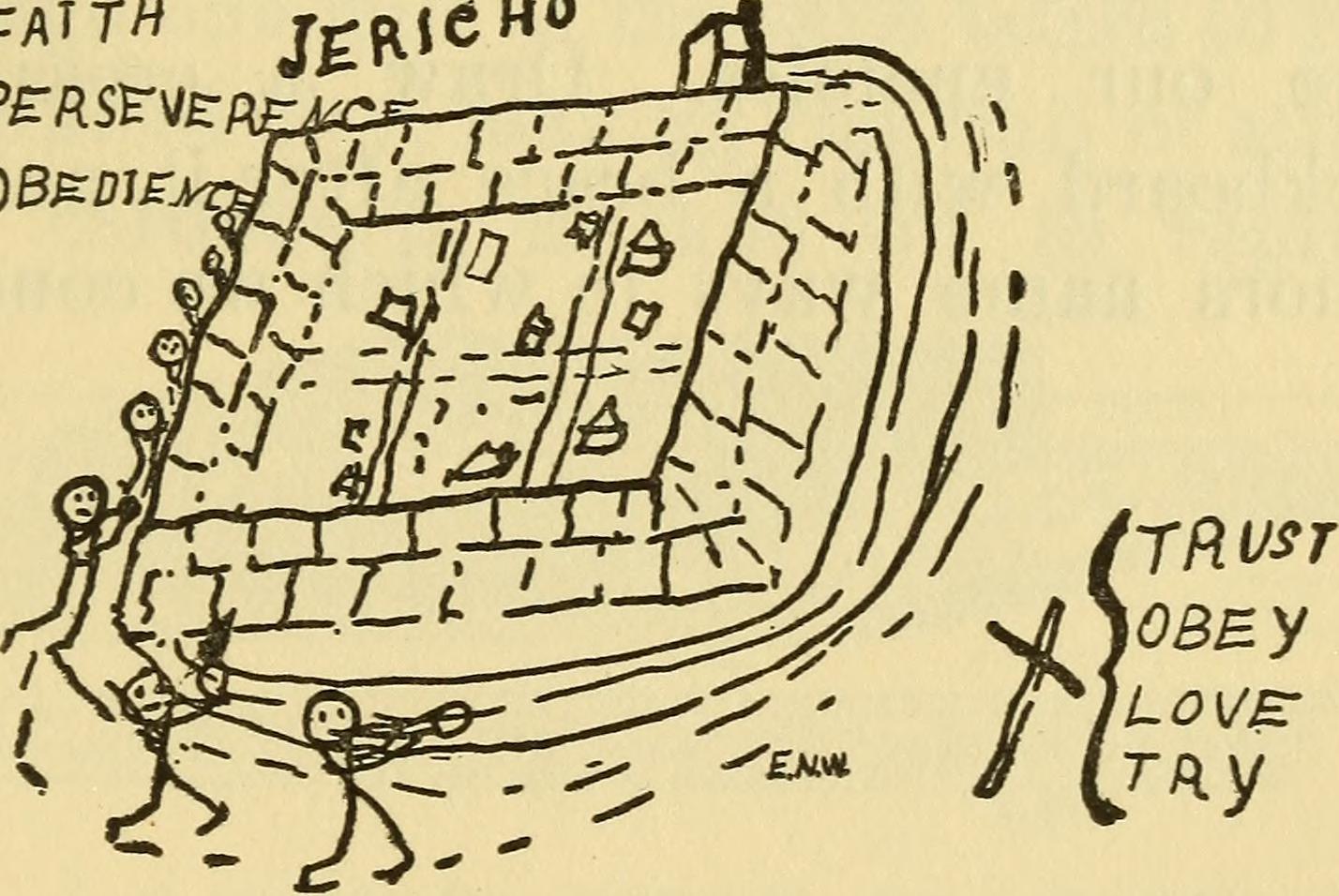It had been several hundred years since God had promised to make of Abram a great nation (Gen 12:1-2). That nation required land. Hence the Promised Land. After a 400 plus year Egyptian bondage and a 40 year wandering in the wilderness, Israel was about to cross over the river Jordan and begin to physically receive their reward; this land promise of God.
The first city to be conquered was Jericho, also known as the City of Palms. It was a well-fortified city with 12 foot high and 6 feet wide walls, a 30 foot tower and a 27 foot wide 9 foot deep ditch beyond the wall. Yet it is noteworthy that though fortified, God spoke to Joshua and said “I have given into thine hand Jericho, and the king thereof, and the mighty men of valor”. (Joshua 6:2). Though the City had been given to Israel, the opportunity to enter the Promised Land and inherit the blessing of God still required human action. In God’s promise “God assumes human action and then blesses it directly and/or indirectly” (C.M. Horner Notes on Joshua pp 16).
But what action would Israel be required to take? Would they just accept the fact that the Lord had given them the City, acknowledge the same, pray and it would be theirs? No. Joshua 6:3-5 provides the details. “And ye shall compass the City, all ye men of war, and go round about the city once. Thus shalt thou do for six days. And seven priests shall bear before the ark seven trumpets of rams’ horns: and the seventh day ye shall compass the city seven times, and the priests shall blow with the trumpets. And it shall come to pass, that when they make the long blasts with the ram’s horn and when ye hear the sound of the trumpet, all the people shall shout with a great shout; and the wall of the city shall fall down flat, and the people shall ascend up every man straight before him.” By obedience the promise was realized. They conquered the City. However, in Judges Chapter 3 we see that this success was only temporary because “the children of Israel did evil in the sight of the Lord” and lost the City (vs 13). Though not an exact parallel, the conquest of Jericho reminds us of our pursuit of salvation today.
The salvation of the Lord was promised to mankind many centuries ago and in the fullness of time God sent forth His Son to redeem us (Gal. 4:4). Jesus came and built His church (Matt 16:18). In Christ and His Church we find “all spiritual blessings” (Eph. 1:3) and salvation (Eph. 5:23). Like in the times of Israel and Jericho there is a promise and it is the right time. There is also human action that is necessary to receive the promise.
In order to realize the promise of salvation one must put on Christ (Gal. 3:27) and be added to His Church (Acts 2:47). This takes place through a response by the Lord to our acts of obedience. We must hear the word of God thereby creating faith (Rom. 10:17). Based upon this belief we must repent; changing our purpose in life to become servants of righteousness (Rom 6:17-18) and confess our belief in Jesus as the Son of God (Rom. 10:9-10; Acts 8:37). These acts of obedience put us in the position to be baptized into Christ, thereby having our sins forgiven (Acts 22:16). Upon obedience to the gospel salvation is ours if we continue to walk in the light as He is in the light (1st John 1:7).
Like Israel and the City of Jericho we can lose our congregation of the Church by doing that which seems right in our own eyes (Judges 17:6). In Revelation 2:5 the Church of Ephesus is told “Remember therefore from whence thou art fallen and repent and do the first works or else I will come unto thee quickly and will remove thy candlestick out of his place except thou repent”. Revelation 1:20 tells us that the candlestick is the congregation of the Church.
In conclusion, in the Book of Joshua we see a recurring theme that God speaks, Joshua commands and the people obey. This was true whether it was the instruction to Rahab to hang the scarlet cord, keep herself and her family in the house and tell no one or the detailed instructions for the capture of the City of Jericho. The success and salvation of Israel depended upon it. Obedience was necessary if they were to receive the promise.
This example of Jericho is relevant to us today. If we are to receive the promise, we must obey the instruction of God or as stated in Romans 6:17-18 “But God be thanked that ye were the servants of sin, but ye have obeyed from the heart that form of doctrine which was delivered you. Being then made free from sin ye became servants of righteousness”. God has done His part. Now we must do our part if we are to receive the promise.
How God Saves – – Keep the Faith





